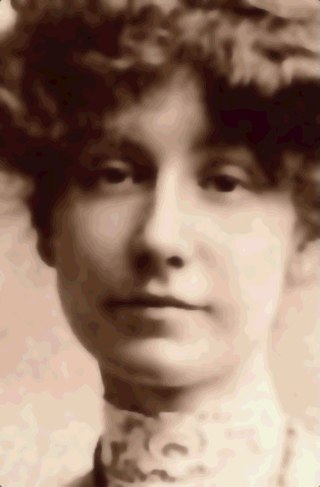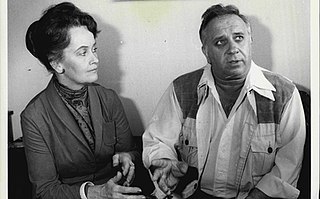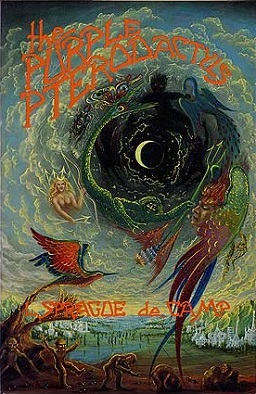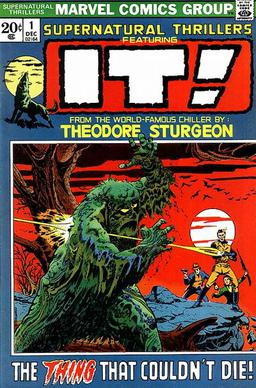Contents
Madame Tara, the old fortune teller living upstairs from Chappie, has been murdered, and her death is investigated by a certain Inspector Ferguson. While being questioned by Ferguson, Chappie realizes his neighbor must have been involved in something truly occult; the corpse has in hand a scrap of paper inscribed with the Solomonic seal of Belial. He calls in his old Navy friend Dr. Ken Wilson, an authority on the supernatural and ancient Egypt. Wilson is assisted by his niece Yalna and Egyptian friend Hassim. The investigation leads the five into conflict with an evil adept.
A villainous cabal seeking a magical Egyptian artifact steal and trap the souls of Dr. Wilson and Yalna in order to use their bodies to further their quest. Chappie and Hassim pursue them through London's seedy night scene in the doctor's Rolls-Royce to thwart the plot and restore their friends.
The country home of an old friend of Dr. Wilson is terrorized by an apelike monstrosity, which Wilson, Chappie and Yalna are called in to investigate. The villainous Beamish, dabbler in the dark arts, appears to be involved.

Horror is a genre of fiction that is intended to disturb, frighten or scare. Horror is often divided into the sub-genres of psychological horror and supernatural horror, which are in the realm of speculative fiction. Literary historian J. A. Cuddon, in 1984, defined the horror story as "a piece of fiction in prose of variable length... which shocks, or even frightens the reader, or perhaps induces a feeling of repulsion or loathing". Horror intends to create an eerie and frightening atmosphere for the reader. Often the central menace of a work of horror fiction can be interpreted as a metaphor for larger fears of a society.

Ramsey Campbell is an English horror fiction writer, editor and critic who has been writing for well over fifty years. He is the author of over 30 novels and hundreds of short stories, many of them winners of literary awards. Three of his novels have been adapted into films.

Genre fiction, also known as formula fiction or popular fiction, is a term used in the book-trade for fictional works written with the intent of fitting into a specific literary genre in order to appeal to readers and fans already familiar with that genre.

The Case of Charles Dexter Ward is a short horror novel by American writer H. P. Lovecraft, written in early 1927, but not published during the author's lifetime. Set in Lovecraft's hometown of Providence, Rhode Island, it was first published in the May and July issues of Weird Tales in 1941; the first complete publication was in Arkham House's Beyond the Wall of Sleep collection (1943). It is included in the Library of America volume of Lovecraft's work.

Manly Wade Wellman was an American writer. While his science fiction and fantasy stories appeared in such pulps as Astounding Stories, Startling Stories, Unknown and Strange Stories, Wellman is best remembered as one of the most popular contributors to the legendary Weird Tales and for his fantasy and horror stories set in the Appalachian Mountains, which draw on the native folklore of that region. Karl Edward Wagner referred to him as "the dean of fantasy writers." Wellman also wrote in a wide variety of other genres, including historical fiction, detective fiction, western fiction, juvenile fiction, and non-fiction.

Hell House is a horror novel by American novelist Richard Matheson, published in 1971.

Margaret Gabrielle Vere Long, who used the pseudonyms Marjorie Bowen, George R. Preedy, Joseph Shearing, Robert Paye, John Winch, and Margaret Campbell or Mrs. Vere Campbell, was a British author who wrote historical romances and supernatural horror stories, as well as works of popular history and biography.

Edward Warren Miney and Lorraine Rita Warren were American paranormal investigators and authors associated with prominent cases of alleged hauntings. Edward was a self-taught and self-professed demonologist, author, and lecturer. Lorraine professed to be clairvoyant and a light trance medium who worked closely with her husband.

The Great God Pan is a horror and fantasy novella by Welsh writer Arthur Machen. Machen was inspired to write The Great God Pan by his experiences at the ruins of a pagan temple in Wales. What would become the first chapter of the novella was published in the magazine The Whirlwind in 1890. Machen later extended The Great God Pan and it was published as a book alongside another story, "The Inmost Light", in 1894. The novella begins with an experiment to allow a woman named Mary to see the supernatural world. This is followed by an account of a series of mysterious happenings and deaths over many years surrounding a woman named Helen Vaughan. At the end, the heroes confront Helen and force her to kill herself. She undergoes a series of unearthly transformations before dying and she is revealed to be a supernatural entity.

Weird West is a term used for the hybrid genres of fantasy Western, horror Western and science fiction Western. The term originated with DC's Weird Western Tales in 1972, but the idea is older as the genres have been blended since the 1930s, possibly earlier, in B-movie Westerns, comic books, movie serials and pulp magazines. Individually, the hybrid genres combine elements of the Western genre with those of fantasy, horror and science fiction respectively.

Occult detective fiction is a subgenre of detective fiction that combines the tropes of the main genre with those of supernatural, fantasy and/or horror fiction. Unlike the traditional detective who investigates murder and other common crimes, the occult detective is employed in cases involving ghosts, demons, curses, magic, vampires, undead, monsters and other supernatural elements. Some occult detectives are portrayed as being psychic or in possession of other paranormal or magical powers.

Dennis William Etchison was an American writer and editor of fantasy and horror fiction. Etchison referred to his own work as "rather dark, depressing, almost pathologically inward fiction about the individual in relation to the world". Stephen King has called Dennis Etchison "one hell of a fiction writer" and he has been called "the most original living horror writer in America".
"A Study in Emerald" is a short story written by British fantasy and graphic novel author Neil Gaiman. The story is a Sherlock Holmes pastiche transferred to the Cthulhu Mythos universe of horror writer H. P. Lovecraft. Gaiman describes it as "Lovecraft/Holmes fan fiction". It won the 2004 Hugo Award for Best Short Story. The title is a reference to the Sherlock Holmes novel A Study in Scarlet.

The Purple Pterodactyls is a collection of fantasy short stories by American writer L. Sprague de Camp. The collection was first published in hardcover by Phantasia Press in January, 1980, and in paperback by Ace Books in April of the same year. It has also been translated into German. An e-book edition was published by Gollancz's SF Gateway imprint on September 29, 2011 as part of a general release of de Camp's works in electronic form. The pieces were originally published between 1975 and 1979 in the magazines The Magazine of Fantasy & Science Fiction, Fantastic, Escape!, and Fantasy Crossroads.
The Hound of the Baskervilles is a 2002 television adaptation of Sir Arthur Conan Doyle's 1902 novel of the same name.

The Wolfen (1978) is the debut novel of Whitley Strieber. It tells the story of two police detectives in New York City who are involved in the investigation of suspicious deaths across the city, which are revealed to be the work of a race of intelligent beings descended from canids, called the Wolfen. The novel is told from the point of view of the human characters as well from the Wolfen themselves.

Robert Maxwell Hood is an Australian writer and editor recognised as one of Australia's leading horror writers, although his work frequently crosses genre boundaries into science fiction, fantasy and crime.

Supernatural Thrillers was an American horror fiction comic book published by Marvel Comics in the 1970s that adapted classic stories of that genre, including works by Robert Louis Stevenson and H. G. Wells, before becoming a vehicle for a supernatural action series starring an original character, the Living Mummy.

Fantasy is a genre of speculative fiction involving magical elements, typically set in a fictional universe and usually inspired by mythology or folklore. The term "fantasy" can also be used to describe a "work of this genre", usually literary.

Venus is an American romance comic book published by Timely Comics in the United States. Running for 19 issues from 1948 until 1952 it transformed over its run from its romance-led stories to finish as a science fiction and horror anthology. It is noted for introducing the Marvel character Venus and an early incarnation of Loki who would later become the nemesis of Marvel character Thor. The final three issues were published through Atlas Comics.


















